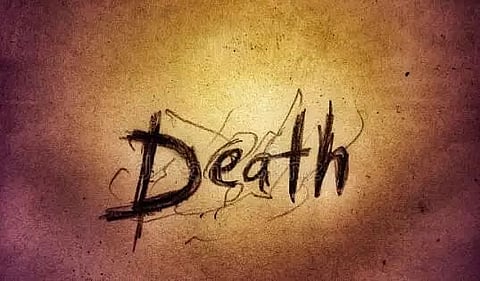
- Home
- Live Blog
- Breaking News
- Top Headlines
- Cities
- NE News
- Sentinel Media
- Sports
- Education
- Jobs

Dr Tazid Ali
(The writer is a Professor, Department of Mathematics, Dibrugarh University. He can be reached at tazidali@yahoo.com)
It is said that one who is born is destined to die. In other words, we are born to die. No doubt modern science has made phenomenal improvements in life expectancy and infant mortality, but it has so far not been able to devise technology to overcome death. Even in many cases, the extended period of life is actually not worth living. We often see death being preceded by excessive and often aggressive medical treatments.
Even being fully aware that death is inevitable, human's clamour to live has never been reduced. Excluding a few, we all do not want to talk or think about death. But why do we live? This is because we survive? What do we expect of our life? Do we search for the meaning of our life? Is there any objective meaning to our life? What is or what should be the purpose of our life? Perhaps we don't think much about all these and continue living conforming to the prevailing system and beliefs of our society. Or lost in the midst of the rat race, we have no time or energy to ponder upon these issues. Most of us are indoctrinated into some belief system or the other. For those who believe in the afterlife, this life is basically a preparation for the other world. For others, this is the only life to live, so they will try to explore their potentialities, optimize their inherent creativities and thereby obtain happiness and satisfaction to its fullest extent.
All living organisms have a natural instinct for survival. We human beings, because of our cognitive capacity, improvise upon this instinct and try to make our life better by improving the standard of living. Basic needs for survival are limited but needs to thrive are unlimited, which often turn into greed. Though we talk of religion, culture, morality, ethics; in our race for living a better life, we forget and set aside all these values. Our passion to live is in marked contrast to what we claim our religions profess. Hinduism says that every individual is a soul that has a body. The soul transmigrates from body to body, depending upon karma during the lifetime of the body, through many cycles of birth and death. Finally, the soul merges with the Ultimate Soul or Brahman. It emphasizes 'Mukti' from the cycle of birth and death as the highest goal of life. So, apparently, the primary objective of an individual should be to hasten the period on earth and return to the Absolute Soul. From this point of view, death should not be mourned, on the contrary, it should be felt like a relief, relieved from one cycle of birth and death. Buddha taught to avoid attachment and desires to end suffering and eventually end the cycle of rebirth. Similar ideas are expressed by Jainism. According to Christianity and Islam, this earthly life is a temporary phase but the life hereafter is eternal. You will suffer eternal torture or eternal bliss depending upon your performance on this earth. Judging from that viewpoint, if someone dies in childhood, no or less sin will be committed and there is a higher probability to proceed to paradise than one who lives to see his/her adulthood. This of course does not mean that one should commit suicide or starve oneself to death.
It is a wonder that people always prepare for life but never prepare for death. We may not evade or control death but we can at least prepare ourselves to face it with grace and dignity. The first step in this direction is perhaps to talk openly about death. Like sex, death also should not be treated as a taboo. Perhaps, quality of death should be counted as a component in calculating Human Development Index (HDI). One who remains aware and conscious about the mortal nature of life and the inevitability of death will be in a better position to accept and face death than others. Perhaps it is our cultures and traditions that have projected the natural process of death as evil. Then this negativity towards death needs to be corrected.
In ancient times, there was a lot of community support for people to consciously run the body down and leave gracefully when the time comes. In the Jain community, for example, they had a practice called 'Sallekhana', or 'Santhara'. It is believed that the Mauryan Emperor, Chandragupta took to 'Sallekhana. The Hindus have something similar called 'Prayopavesa'. It is said that Acharya Vinoba Bhave took this form of death. Modern people will not submit to 'Sallekhana' or 'Prayopavesa', but thinking of death now and then will surely benefit by reminding the futility of the materialistic world and thus provide solace from the harsh and often ugly reality of modern life.